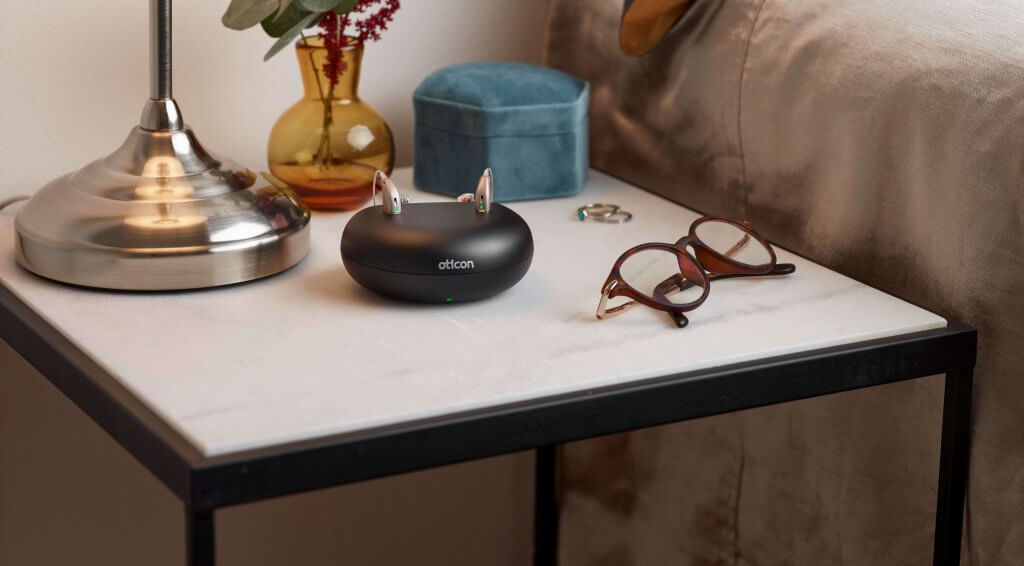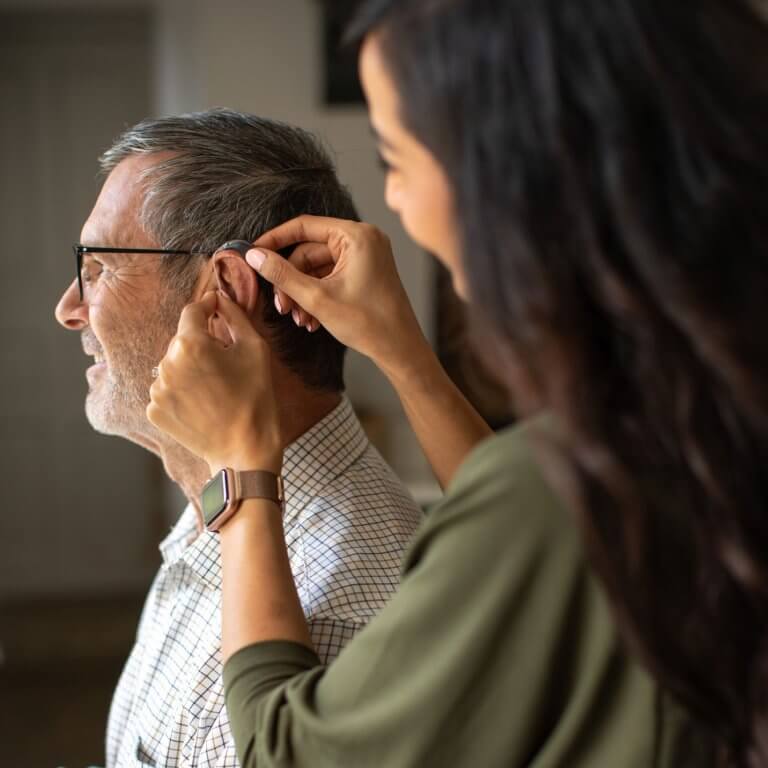Cost
The biggest difference is the cost. When acquiring hearing aids through the NHS, your hearing aids are free. However, it’s important to note that any hearing aids received via the NHS are actually technically on loan and there might be fees to replace them if they become lost or damaged.
Private hearing aids are not free, but most providers, such as The Hearing Care Partnership, offer different hearing aid prices and hearing aid payment plans to suit a wide range of budgets.
Technology and features
Private hearing aids are much more likely to offer more advanced technology—think noise reduction, speech enhancement, and Bluetooth hearing aids for better connectivity—and a range of different styles, while NHS models tend to be limited to Behind-the-Ear models.
The types of hearing aids available privately, including at THCP, include:
This diversity allows for a more tailored fit and discreet appearance, as well as more advanced features to improve your quality of life and suit your lifestyle and personal taste.
Waiting times
Waiting times can be a crucial factor when considering your options for a hearing test and hearing aid fitting. Private hearing aid providers usually offer shorter waiting times – particularly appealing if you’re seeking an immediate solution.
When applying for hearing aids through the NHS, you can expect to wait for a while before you’re seen. The actual duration of the wait depends on multiple factors, such as your location and the demand for services in your area. In some cases, there will be a waiting list for both the initial hearing test and fittings.
Services
Your hearing aid process universally starts with a free hearing test. But that’s where the similarities between private and NHS hearing care stop. When you choose to go private, you can receive many additional services when you have hearing aids fitted. Tailored fittings, follow-up appointments, ongoing support, and adjustments are all services that private providers can offer you.
Aftercare
When it comes to private hearing care, the service doesn’t end after your hearing aid fitting. At The Hearing Care Partnership, we have a whole host of aftercare options available, including:
- Servicing every 6 months
- Free batteries for up to 5 years (if battery powered)
- Free follow-up appointments
- Free warranty for 3 to 5 years
- And complimentary ear wax removal.
On the NHS, your aftercare may look a bit more simple and follow-up appointments after your fitting are only booked if needed.




